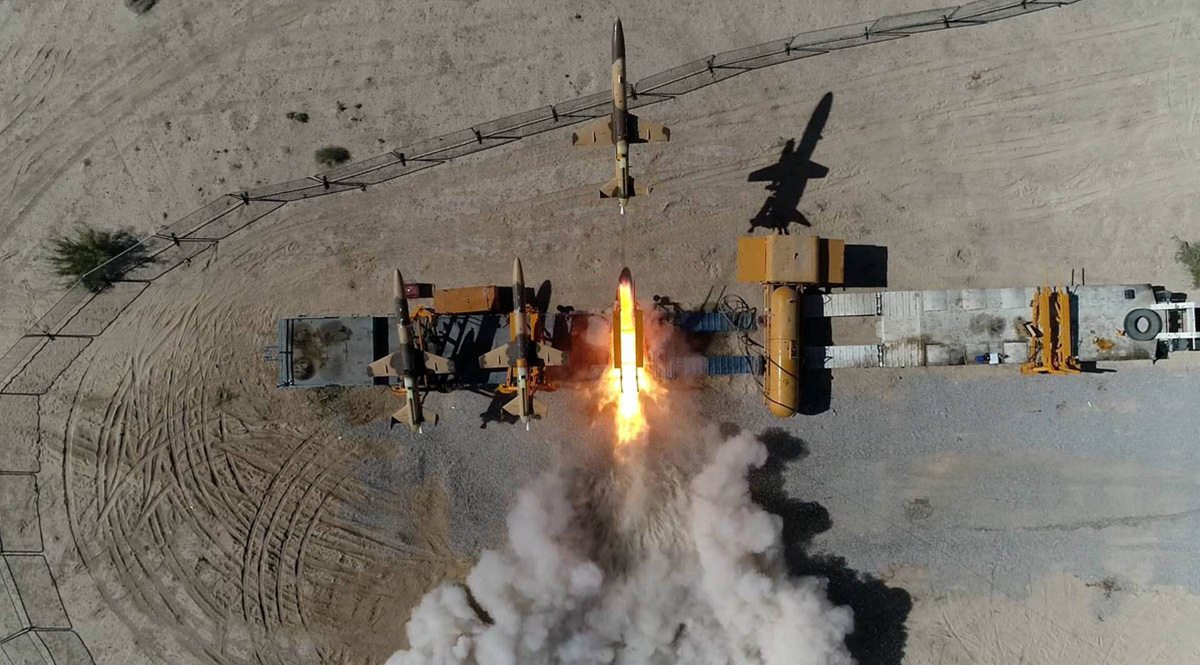EU Plans New Maritime Operation in the Red Sea
A new EU military operation will increase protection of merchant ships off the coast of Yemen. It will also allow for more effective use of the potential of European countries and provide greater visibility of their contribution to protect vital shipping routes. This should blunt accusations that Europe does not take enough responsibility for its own security, which may be an element of the U.S. presidential campaign.
 MOHAMED ABD EL GHANY / Reuters / Forum
MOHAMED ABD EL GHANY / Reuters / Forum
On 22 January, EU foreign ministers offered preliminary support for the creation of the EU naval operation ASPIDES in the Red Sea, the Gulf of Aden, and the Bab al-Mandeb Strait. Its aim will be to protect merchant ships from attacks by Shiite Houthi militias from Yemen, which are reacting to the Israeli offensive in the Gaza Strip. Although the Houthis announced that they will attack ships linked to Israel, they are also targeting random vessels. Since October, they have carried out more than 30 attacks using drones and missiles. They also board the ships, hijack the vessels, and terrorise the crews.
The threat has led to disruptions in the transport of goods, affecting the economic and other interests of European countries. Communication routes through the Red Sea account for 15% of global cargo transport by sea. They are crucial for trade between Europe and Asia (40% of trade) and for deliveries of oil and LNG from the Middle East to Europe and the U.S. As shipowners began to divert their ships to routes around Africa, the time and costs of transporting goods increased. This turned into delays in the delivery of goods and increases in energy prices and rising inflation. Disruptions in supply chains have hit hardest the countries that are most dependent on trade with Asia, including France, the Netherlands, Germany, the UK, and Italy. Others may be negatively affected by disruptions in supply chains due to their dependence on cooperation with major EU economies. Most countries, however, experience the negative effects of rising energy prices and inflation.
Attempts to Form a Coalition
The decisions to establish an EU military operation were preceded by diplomatic actions that emphasised the importance of freedom of navigation and the security of shipping lanes. On 19 December, the EU foreign policy chief, the Secretary General of NATO, the U.S. and eight other countries condemned the actions of the Houthis in a joint statement. On 10 January, the UN Security Council adopted a resolution (2722), which recognised the attacks as a threat not only to global trade but also to regional peace and security. To ensure the protection of ships, the U.S. announced on 20 December 2023 the creation of the Prosperity Guardian (PG) operation. However, only five European countries decided to openly join it—Denmark, Greece, the UK with ships, and the Netherlands and Norway strengthening the command in Bahrain with their officers. Some of the European countries that were initially mentioned as participants in the mission (France, Spain, Italy) did not confirm this information and declared that their ships would conduct operations based on existing cooperation formats. Attempts to distance themselves from the U.S. were caused by, among others, concerns that participation in a coalition under American leadership may increase the risk of mission participants being drawn into a regional conflict. The U.S. military presence in the region serves broader purposes, including support for Israel and deterring Iran and the organisations it supports. The attempts to deter attacks assume readiness for escalation, as indicated by U.S.-British attacks on Houthi military infrastructure. Some countries with strong pro-Palestinian sentiments (e.g., Spain) may also have feared that participation in the U.S.-led mission would be perceived as support for Israel, would cause internal political tensions or would harm their relations with Arab countries.
As a way to make greater use of European potential, the European External Action Service (EEAS) proposed extending the mandate of the EU Atalanta operation, which also covers the Red Sea, and its aim is to protect ships from pirate attacks and enforce the UN embargo on arms supplies to Somalia. However, Spain, which currently commands Atalanta and supports it with a frigate, was against it. Therefore, the EEAS took another initiative and proposed the creation of a separate military operation as part of the common security and defence policy (CSDP). This initiative gained the necessary political support and is expected to be formally approved by EU foreign ministers on 19 February.
At least three ships would participate in the mission. Germany, Belgium, and the Netherlands announced their initial readiness to contribute frigates. The operation is likely to use the command structure of another mission under European leadership (but not under the Common Security and Defence Policy, CSDP) in the Strait of Hormuz (EMASoH). Its military dimension (AGENOR) is supported by France, which plays the main role due to the provision of its command in Abu Dhabi, as well as Belgium, Denmark, Greece, the Netherlands, Norway, and Italy (Germany and Portugal provide it with political support).
Military and Political Significance
Like AGENOR, the new operation will likely operate under a clearly defensive mandate that will only include the ability to counter missiles, drones, and boarding attempts. At least three frigates armed with air and missile defence systems will enhance the ability to protect commercial ships off the coast of Yemen. The use of reconnaissance aircraft could additionally increase the effectiveness of detecting and combating threats. The involvement of countries present in the region but which consider the protection of ships heading to their ports as a priority will be a signal that all ships can count on protection. Increasing the presence and visibility of warships in the threatened region will have a positive impact on the sense of security of ship crews and ship owners. Coordination of activities with Operation Atalanta and Prosperity Guardian will further facilitate the control of a larger area. Coordination with PG will also have political significance, indicating the EU cooperates with the U.S in protecting common security interests.
The operation will strengthen the military dimension of the CSDP, which currently includes 12 civilian and nine military missions and operations. A clearly defensive mandate will reduce the risk of escalation, which will ensure greater political and practical support from EU Member States for the operation. It will also make it easier to obtain political and practical support (logistics, use of naval bases) from Arab countries, whose economic interests have also been threatened by Houthi attacks. It will not complicate diplomatic activities carried out by the EU and individual countries to stabilise the situation in Yemen. While this will likely not deter the Houthis from continuing attacks, it may influence Iran’s calculations regarding arms deliveries for the Houthis. Continuing attacks on merchant ships, especially warships involved in the operation, may force a tightening of European policy towards Iran. European countries would come under pressure to use the operation, for example, to enforce the UN embargo on the supply of Iranian weapons to the Houthis or to impose additional sanctions against Iran.
Conclusions and Perspectives
An EU maritime operation is the optimal way to increase the involvement of European countries in protecting shipping in international waters. Due to differences in interests that limit the possibility of European countries joining the U.S.-led coalition, it was unrealistic and undesirable to create a mission in NATO framework. At the same time, the creation of another European coalition like AGENOR would be less visible and would limit the possibility of using the potential of EU Member States.
The EU will demonstrate that it has technical capacity, resources, and political will to conduct missions and operations in its neighbourhood. Some countries may use this to reduce concerns about the U.S. focusing on threats in the Indo-Pacific, at the expense of the security of Europe and the regions bordering it. Although the operation is an attempt to distance itself politically from the U.S., it may have a positive impact on Europe’s relations with the United States. The EU and individual European countries will be able to argue that they share responsibilities for common security with the U.S. This will make it difficult to formulate accusations that Europe does not take responsibility for its own security, which could arise during the campaign before the U.S. presidential elections.
Political and practical support for the EU operation is in Poland’s interest. Its creation reduces the risk that some countries will demand operations under NATO leadership, which could lead to political tensions within the Alliance. Although Poland does not have adequately armed frigates to support the EU operation (the first of three new frigates may become operational by the end of the decade), it may consider strengthening the command with its officers or supporting an air reconnaissance mission.





